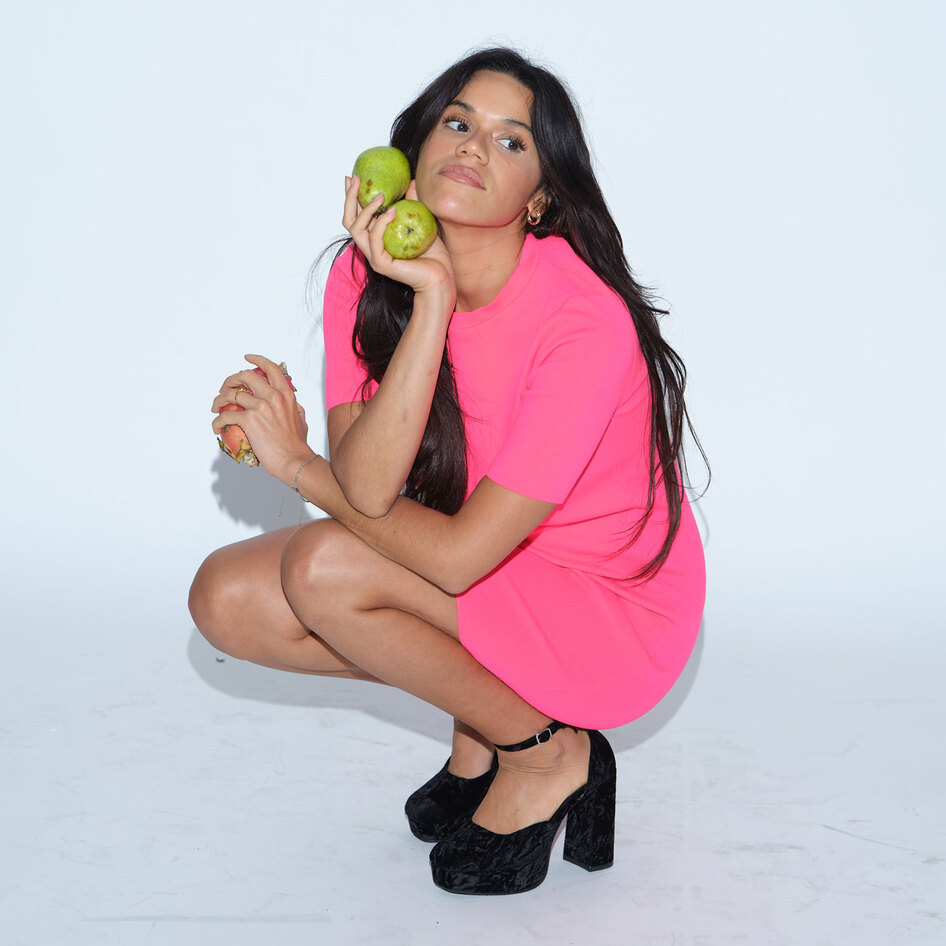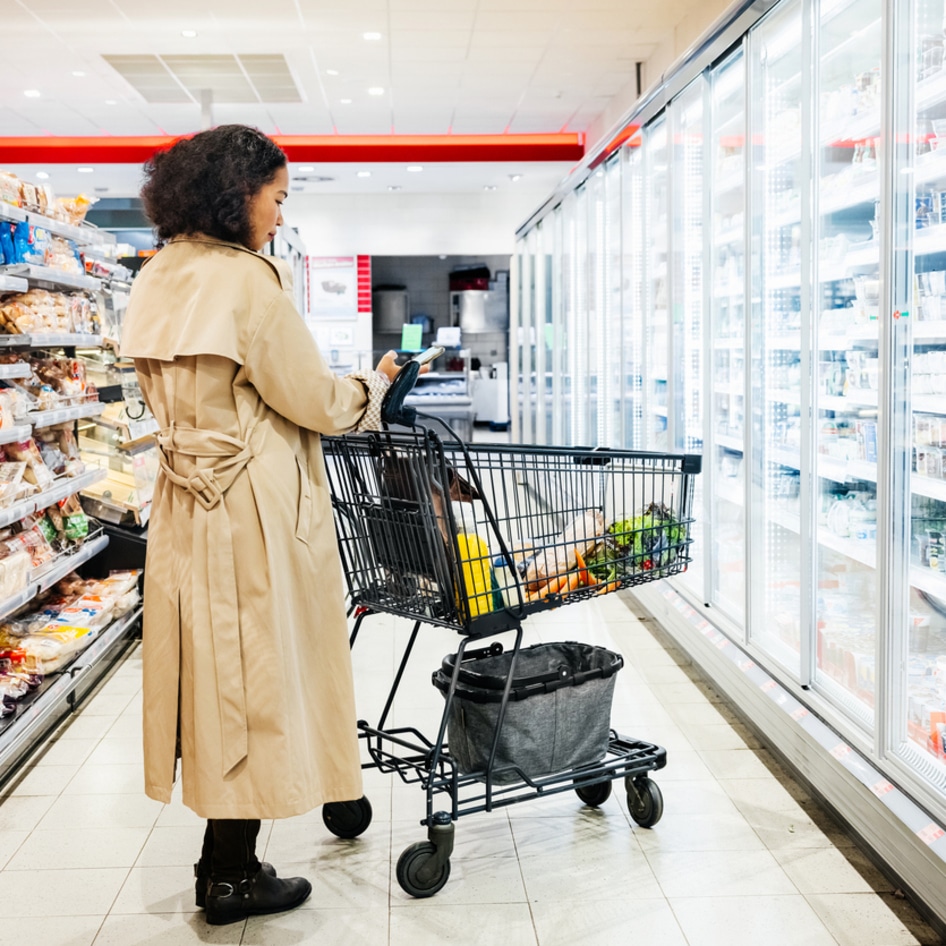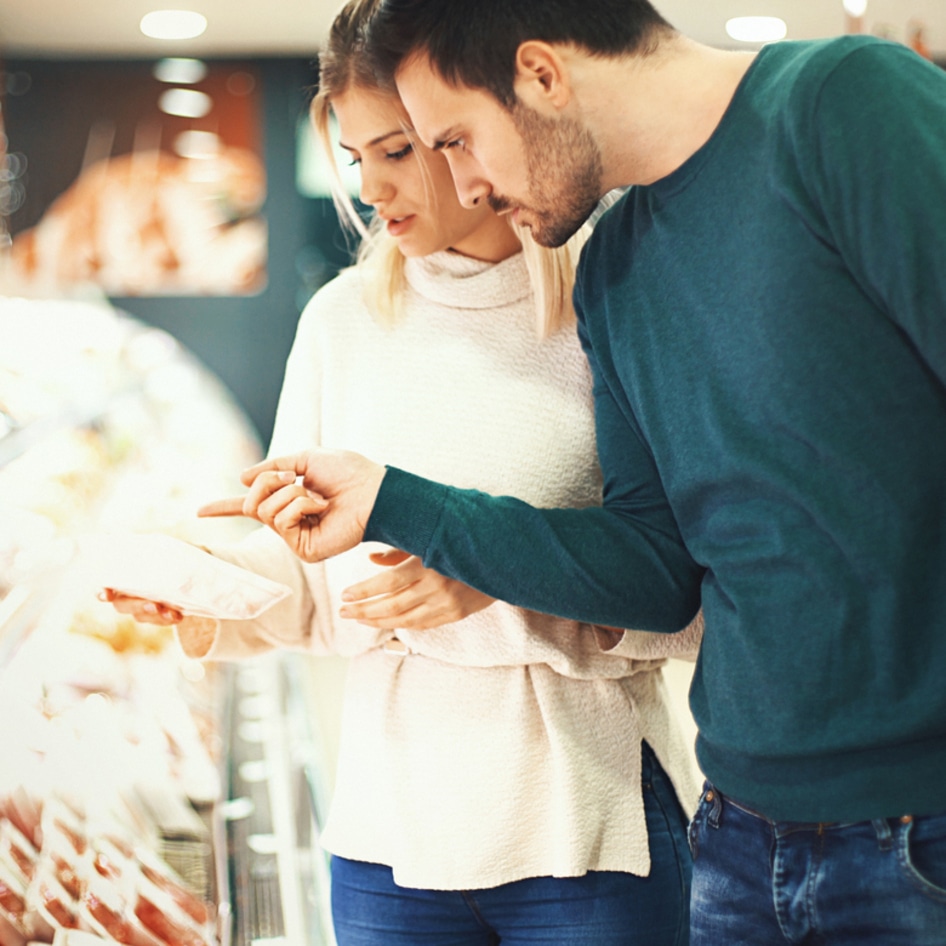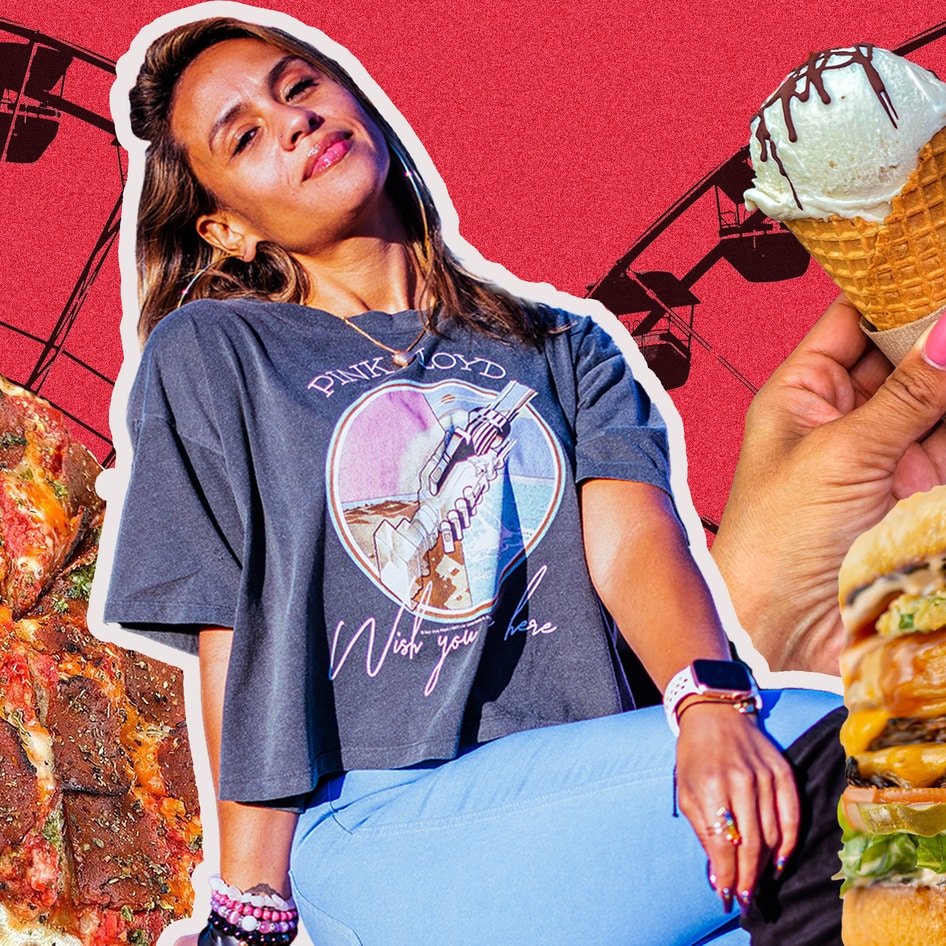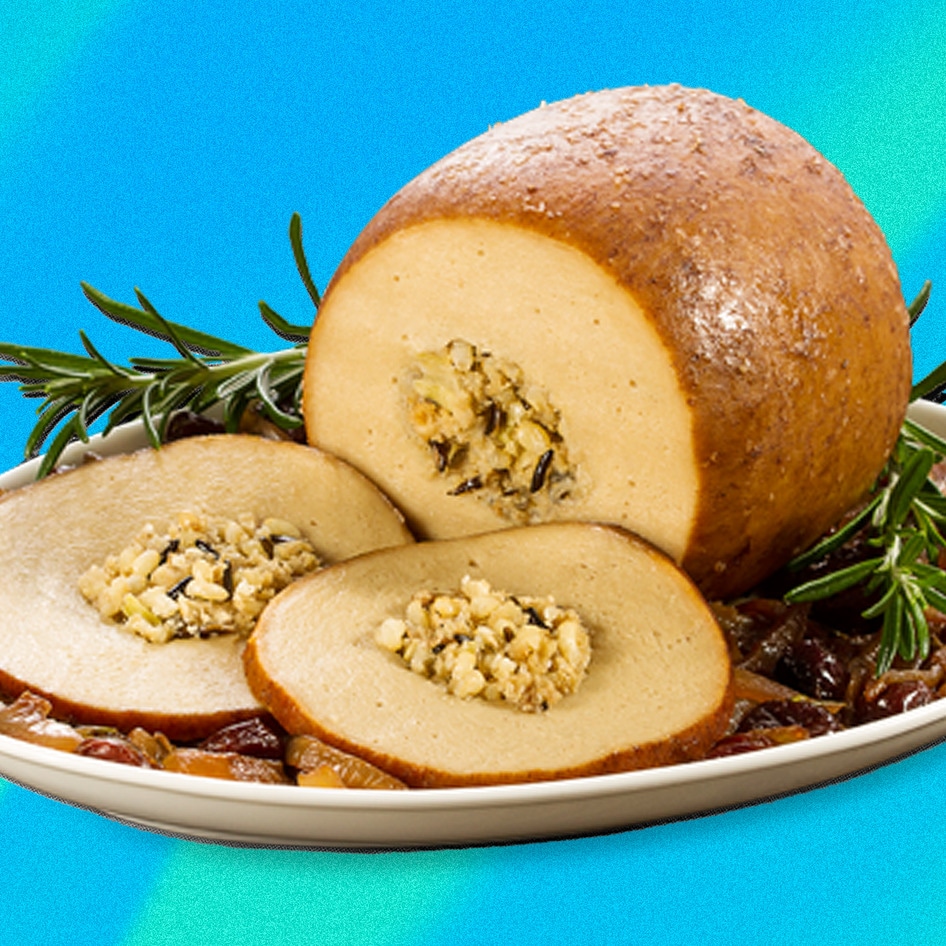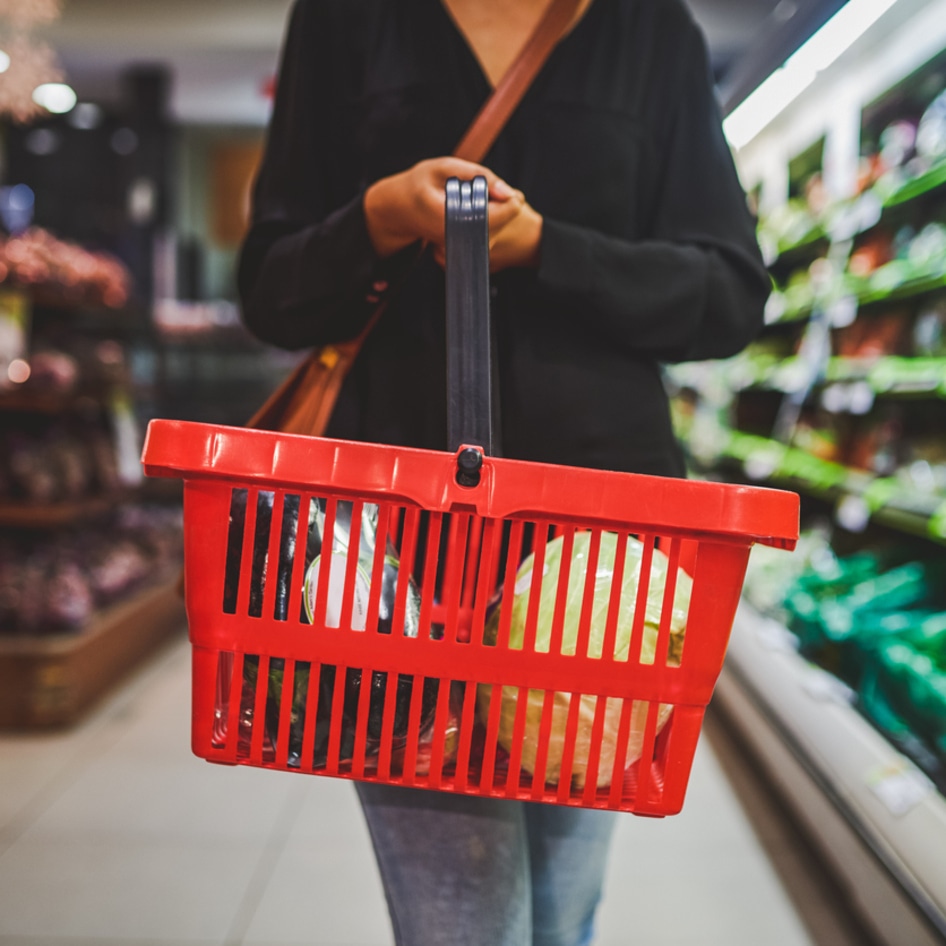Bryant Terry on (Vegan) Food Politics
Bryant Terry talks about his new book, the tie between veganism and race, and food politics.
January 29, 2012
We may only be a few weeks into the new year, but author and food activist Bryant Terry already has plenty on his literal and figurative plate. Between penning his third book The Inspired Vegan: Seasonal Ingredients, Creative Recipes, Mouthwatering Menus and hosting the new web series Urban Organic, Terry is using his culinary prowess and progressive knowledge of food politics to make changes on a scale from dinner plates to entire communities. We caught up with Terry the day after his book-launch party to hear more about his inspirations, goals, and theories about putting the passion back into vegan cuisine.
VegNews: How do the recipes in The Inspired Vegan vary from those found in your previous books, Vegan Soul Kitchen and Grub?
Bryant Terry: All three of my books have the texture of autobiography—I share what’s happening in my own personal life, what’s happening to me politically, and what I’ve been consuming and enjoying. So, this book was written throughout the time that I was in the process of getting married, and my wife’s cooking deeply influences not only what I eat, but also my approach in general. My wife is Chinese-American, and she is adept at cooking a range of Asian foods from Chinese to Vietnamese to Thai. We have intentionally combined our cultural food styles, especially after having a daughter last April. We really want our daughter to embrace both her Chinese-American side and her African-American side, and the foods that come along with each culture. Another important aspect of this book is the structure around menus. One of the questions I frequently get when I’m speaking—especially from people who have transitioned from an omnivorous diet to a plant-based diet, to vegetarian or vegan—is how to put together well-balanced, delicious, interesting meals if meat isn’t at the center of the plate. I wanted to use this book as an opportunity to educate people about putting together sumptuous vegan meals that are interesting, exciting, and cutting-edge.
VN: Your daughter is going to have some awesome school lunches! Speaking of other aspects that make this book unique, what made you decide to include the song and book pairings with each dish?
BT: Our industrial food system has made food items into commodities, and I think that there’s a chasm that has come out wherein food is on one side and art, culture, and community are separate. When I consider my own upbringing, eating a meal wasn’t just a way to fuel yourself—it was about gathering at the table and enjoying the sensual pleasures of cooking. Meals were about harvesting the fresh food that my family was growing in their backyard garden and then collectively taking part in the preparation of it, gathering and talking and connecting. I come from a very musical family. My relatives were always playing the piano, singing, and having fun. When we finally sat down at the table, it was a very festive moment where we shared what was going on in our lives. I just don’t think I could ever write a book that didn’t include soundtracks and ideas, because those are the ways that food has been so central to my life.
VN: You cite your grandparents as major influences for your interest in food. What activities or lessons did they share with you that shaped your passion for cooking and for food activism?
BT: One of the main lessons that I learned from my grandparents is that growing one’s own food is vital for self-determination. I think about the fact that my paternal grandfather used every bit of available space in his backyard to grow food. And he lived in the city! When I think about my food and cooking, I have the political objective to move people to be more active and create a more helpful, just, and sustainable food system, and I have my ideas about why I think it’s important that we all contribute to a compassionate food system and advocate for the rights of animals.
VN: Is there a particular type of person or group that you envision as your audience or are hoping to reach specifically with your food?
BT: One of the things that I’ve been so excited about is that I have such a diverse audience. In terms of my activist self, I certainly understand that in this country we’re looking at a moment in history where we’re one of the sickest and one of the most obese nations. I also understand that there are certain communities that are deeply impacted by these issues, whether it’s poor white people living in rural Appalachia, or historically, marginalized African Americans living in urban centers. There are diverse groups of people living in food-insecure situations in the United States. I’m interested in illuminating the deep-seated issues that I know these communities are facing, because I know that often these issues are overlooked and these people feel voiceless. But then there’s another part of me that just loves making tasty vegan food, and knows that I have the power to continue to shift perceptions about vegan food and educate people about how you can have such a diverse and varied plant-based diet, such flavorful and delicious meals made just from vegan foods and not have to have any animal products.
VN: Do you view The Inspired Vegan and your new web series Urban Organic as being related, or do you have separate or unique goals for each?
BT: I see them as being related, certainly, going back to part of my mission ensuring that I connect with the most impacted and the most food-insecure communities, that I can help spread knowledge about preparing wholesome, healthful meals. A lot of that is encouraging people to think about not only the existing cutting-edge solutions for bringing healthful food into cities, but also helping people understand that we don’t have to have advanced degrees, run some multimillion dollar NGO, or have a cookbook to be active in this role of helping communities around the US. That’s what I want to prove when I’m interacting with the Urban Organic communities.
VN: Why do you think the belief persists that veganism is a privileged white person phenomenon?
BT: Most of the catalysts for my embracing vegetarianism—and then veganism—came from people of color. The first moment when I really thought about animal rights and a compassionate outlook was when I heard the song “Beef” by Boogie Down Productions and the rapper KRS-One. It was such a brilliant, articulate discussion of the horrors of factory farming and what animals have to endure. I also read this book by African-American activist and comedian Dick Gregory, Dick Gregory’s Natural Diet For Folks Who Eat: Cookin’ with Mother Nature, in which he talks about his journey of going from an omnivore to a vegetarian and a vegan and a fruitarian, and that was deeply impactful. I started connecting with this community of folks in Memphis who were Rastafarians, who were Seventh-Day Adventists, who were people in the Nation of Islam, who all had vegan diets. Before that, I had been in the straight-edge punk community, which was made of conscious white folks who were thinking about these issues, but I pretty much always hung around vegans of color. So many things that people of color do aren’t illuminated in the media or shown to the wider culture. If you never go into an African-American community or go into an Afro-Caribbean community, how would you even know that they have five or six vegan restaurants? One of my missions as well as a cookbook author is to ensure that African American and Afro-Caribbean cuisine isn’t “ghetto-ized” or approached in a very patronizing way. I want to let people know that they can have a healthful meal of African-American cuisine, beyond stereotypes, beyond this very narrow perception.
VN: What direction or what light do you see food politics going into in the next 10 or 20 years?
BT: The direction I hope it continues in is toward solutions for food insecurity, for problems that people are facing in the US due to lack of access to healthful sustainable foods. All too often I’ll see well-meaning, altruistic, beautiful people who have a desire to work in and address food insecurity issues in communities that they don’t come from. There are some complicated race and class issues around that, but if one has the resources, the desire, and the access to information to be an ally for many of these impacted communities then I applaud that. However, if outside people aren’t working to fundamentally shift the power and ensure that the people living in those communities are in charge of contributing to the ideas of and guiding the solutions for the pervasive problems, I don’t think it will be as effective, and I don’t think it’s as authentic. It’s about helping communities build that power and be self-determined.
JUMP TO ... Latest News | Recipes | Guides | Health | Shop

